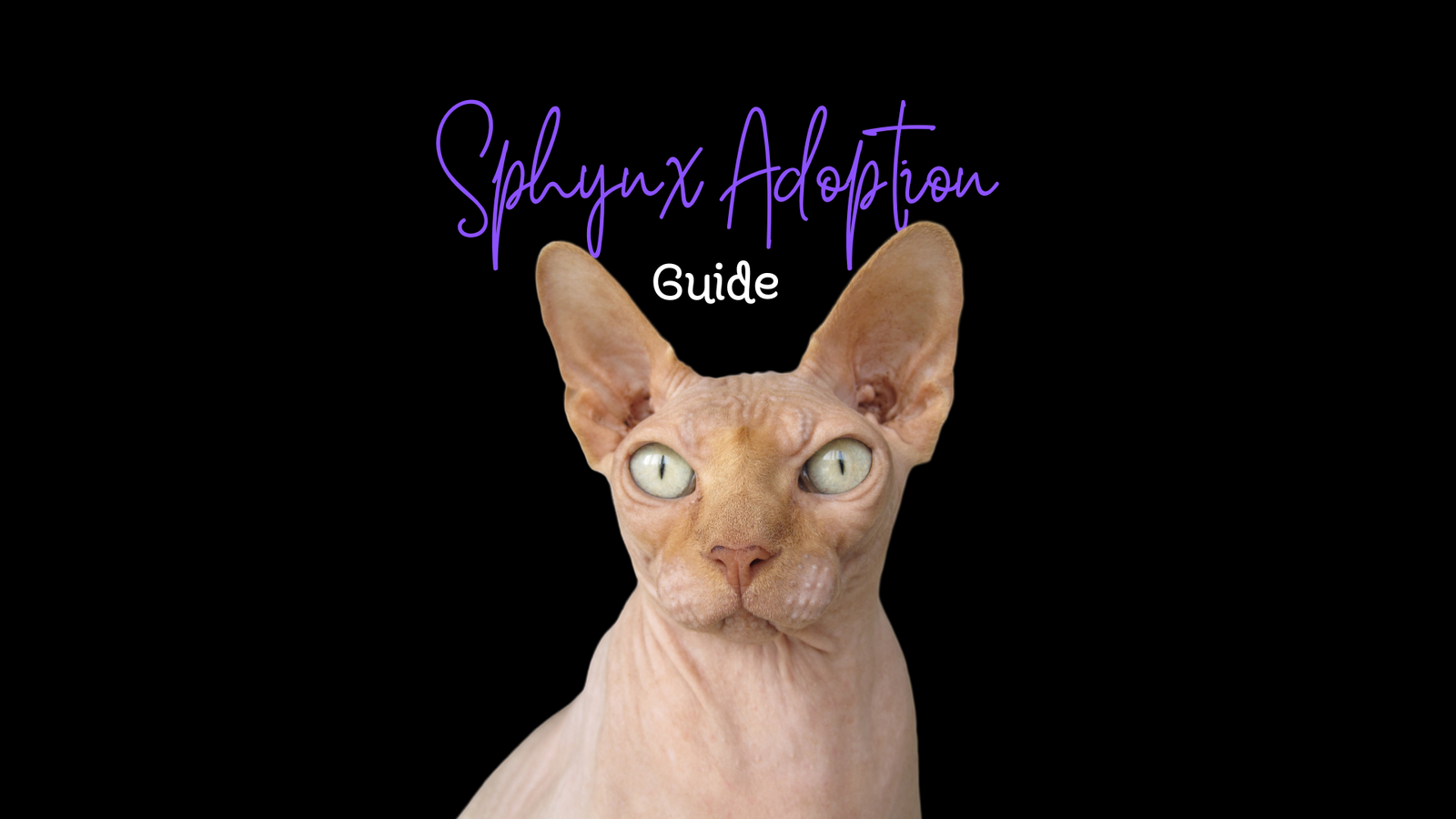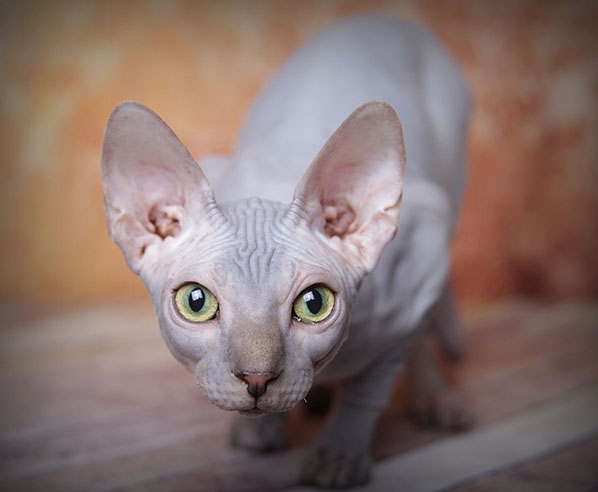Adopting a Sphynx cat can be an exciting and rewarding experience, but it’s important to be fully prepared for the unique needs of this hairless breed. From finding a reputable breeder or rescue to understanding their specific care requirements, there are several factors to consider before bringing home a Sphynx. In this Sphynx Cat Adoption Guide, we’ll walk you through the key steps to ensure a smooth adoption process and a happy, healthy start for your new companion.
For a more comprehensive overview of Sphynx care, visit our Sphynx Cat Care Guide.
Sphynx Cat Adoption Methods
1. Finding a Reputable Sphynx Breeder or Rescue
The first step in adopting a Sphynx cat is choosing where to adopt from. Whether you decide to adopt from a rescue or purchase from a breeder, it’s essential to ensure that the organization or individual you’re working with prioritizes ethical practices and the health of their cats.
Key Tips for Finding a Breeder:
- Health Testing: Reputable breeders screen their breeding cats for genetic conditions like Hypertrophic Cardiomyopathy (HCM) to ensure the health of their kittens. Always ask for health certificates and vet records.
- References: Ask for references or reviews from previous adopters to ensure that the breeder follows ethical practices.
- Visit the Cattery or Rescue: Visiting the breeder or rescue in person, or through a virtual tour, allows you to assess the environment the cats are raised in and ensure it’s clean and well-maintained.
Related Post: For a more detailed guide on selecting the right breeder, visit our Sphynx Cat Breeder Selection Guide.
2. Understanding the Costs of Adopting a Sphynx Cat
Sphynx cats are a premium breed, which means the initial cost of adoption or purchase can be high. On top of that, their unique health and grooming needs can also add to the overall cost of ownership. It’s important to understand both the upfront and long-term costs before deciding to adopt.
What to Expect:
- Purchase Price: A Sphynx kitten from a reputable breeder can cost anywhere from $2,500 to $5,000 depending on pedigree, coat color, and other factors.
- Adoption Fees: If you’re adopting from a rescue, fees typically range from $300 to $600, which often includes vaccinations and spaying/neutering.
- Ongoing Costs: Be prepared for costs related to veterinary care, special grooming needs, high-quality food, and frequent skin care products.
Related Post: Learn more about the cost breakdown in our How Much Does a Sphynx Cat Cost? Breaking Down the Price post.
3. Preparing Your Home for a Sphynx Cat
Sphynx cats are unique in their need for warmth, comfort, and environmental stimulation. Preparing your home ahead of time will help ensure your new cat transitions smoothly into your life. Due to their hairlessness, Sphynx cats are more sensitive to temperature changes, so providing a warm, cozy environment is key.
Key Preparations:
- Warm Spaces: Set up warm, cozy spaces with blankets, heated beds, or heated pads. Sphynx cats often seek out warmth, so having multiple cozy spots around your home is important.
- Scratching Posts and Toys: Sphynx cats are active and intelligent. Make sure you have scratching posts, climbing structures, and plenty of toys to keep them entertained and mentally stimulated.
- Litter Box Setup: Set up a clean and accessible litter box in a quiet area. Given the sensitive nature of Sphynx cats’ skin, choosing the right litter is crucial to prevent irritation.
Related Post: For tips on setting up a litter box, visit our Litter Training Tips for Sphynx Kittens.
4. Health Considerations Before Adopting a Sphynx Cat
Sphynx cats are prone to certain health issues, so it’s important to be aware of their specific needs before adopting. Regular veterinary care and preventive health measures, such as vaccinations and screenings for genetic conditions, are essential to maintaining their health.
Common Health Issues:
- Hypertrophic Cardiomyopathy (HCM): Sphynx cats are more prone to HCM, a genetic heart condition that can be detected through regular screening. Be sure to ask your breeder about the health history of the kitten’s parents.
- Skin Care: Without fur to absorb oils, Sphynx cats require regular baths and skin care to avoid oil buildup, acne, and skin infections.
- Vaccination Schedule: Ensure that your Sphynx cat is up-to-date on vaccinations and discuss an appropriate schedule with your vet.
Related Post: To learn more about managing these common health concerns, check out our Common Health Issues in Sphynx Cats post.
5. Socialization and Bonding with Your New Sphynx Cat
Sphynx cats are known for their affectionate, people-oriented personalities. They thrive on human interaction and bond closely with their families. Proper socialization and spending quality time with your new Sphynx cat will help foster a strong, trusting relationship.
Socialization Tips:
- Introduce Gradually: If you have other pets, introduce them to your new Sphynx slowly and under supervision to avoid stress.
- Playtime and Affection: Sphynx cats love to play and cuddle. Regular play sessions will help keep them active and mentally stimulated.
- Avoid Loneliness: Sphynx cats can become lonely or bored if left alone for long periods. If you’re frequently away from home, consider adopting a second Sphynx or another companion for your cat.
6. Planning Your Sphynx’s First Vet Visit
After adopting your Sphynx, schedule their first veterinary visit to ensure they’re in good health and to establish a preventive care routine. Your vet will likely check for common genetic conditions, perform a general wellness exam, and set up a vaccination schedule.
First Vet Visit Checklist:
- Vaccination Records: Bring any vaccination records provided by the breeder or rescue to your vet appointment.
- Health Screenings: Ask your vet to check for conditions like HCM, and discuss regular screenings moving forward.
- Skin and Dental Care: Your vet can provide guidance on the best skin care routine for your Sphynx and discuss the importance of regular dental check-ups.
Related Post: For tips on preparing for veterinary care, visit our Preparing Your Sphynx for Veterinary Care post.
Conclusion
Adopting a Sphynx cat is a rewarding experience, but it’s important to be prepared for the specific needs of this unique breed. By choosing a reputable breeder or rescue, understanding the costs, preparing your home, and staying on top of health care, you’ll be ready to welcome your new Sphynx into your life. With proper care and attention, your Sphynx cat will be a happy and healthy addition to your family.
For more in-depth care tips and resources, check out our Sphynx Cat Care Guide and related guides like Common Health Issues in Sphynx Cats and Litter Training Tips for Sphynx Kittens.



